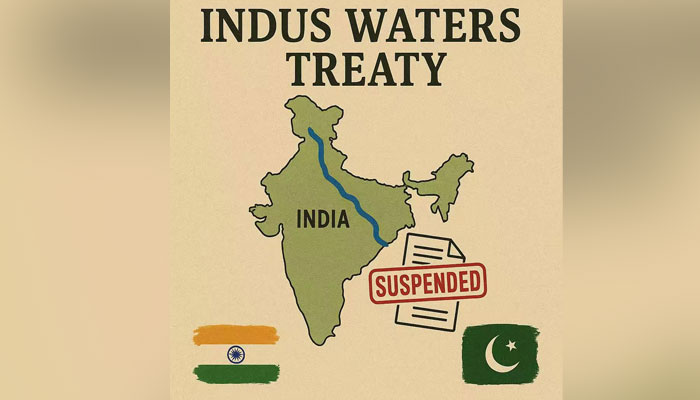South Asia on the Brink: Indus Treaty Suspension Sparks Fears of Water Wars
By: Maher Ahsan Siyal
In a dramatic escalation of regional tensions, India has unilaterally suspended the Indus Waters Treaty with Pakistan, a move that risks further destabilizing already strained relations between the two nuclear-armed neighbors. The decision comes in the wake of the tragic terrorist attack in Pahalgam, Jammu and Kashmir, which left 26 people dead — including 25 Indian nationals and one Nepali tourist. Indian authorities have attributed the attack to militants operating from Pakistani soil, prompting a swift and severe response from New Delhi.
Signed in 1960 under the auspices of the World Bank, the Indus Waters Treaty had long been viewed as a rare symbol of cooperation, even amid wars and political hostilities between the two countries. The agreement divided control of the Indus River system, granting Pakistan access to the western rivers while India maintained rights over the eastern tributaries. Despite its durability for over six decades, the treaty has now become a casualty of heightened political animosity.
India’s suspension of the treaty signals a significant shift in its strategic approach, reflecting a harder stance against what it describes as Pakistan’s continued support for cross-border terrorism. Officials in New Delhi have hinted that further measures could follow, including the halting of critical hydrological data sharing, the diversion of river flows, and the acceleration of dam construction projects that could severely limit Pakistan’s water supplies.
Islamabad, for its part, has categorically denied any involvement in the Pahalgam attack and has called for an impartial international investigation into the incident. The Pakistan Government has also warned that India’s unilateral action could be interpreted as a breach of international norms, and even an act of war, raising alarm over the possibility of deeper conflict.
The stakes are extraordinarily high. Pakistan relies on the Indus River system for more than 80 percent of its irrigated agriculture. Any disruption to the river flows could have devastating effects on food security, rural livelihoods, and the broader economy. Environmental experts further warn that reduced water availability could exacerbate desertification and groundwater depletion in an already climate-vulnerable region.
The international community has reacted with growing concern. The United Nations has condemned the attack in Pahalgam and emphasized the need to protect civilians, urging both India and Pakistan to exercise restraint. Diplomatic channels are reportedly active behind the scenes, with major powers advocating for a return to dialogue to prevent a dangerous escalation.
The unraveling of the Indus Waters Treaty highlights the fragile nature of peace in South Asia, where historical grievances and political mistrust continue to threaten stability. As water resources increasingly become a strategic asset — and a potential weapon — the need for renewed diplomatic engagement has never been more urgent. Without meaningful efforts to rebuild trust, the suspension of the treaty could mark the beginning of a new, perilous chapter in India-Pakistan relations.





Comments are closed, but trackbacks and pingbacks are open.